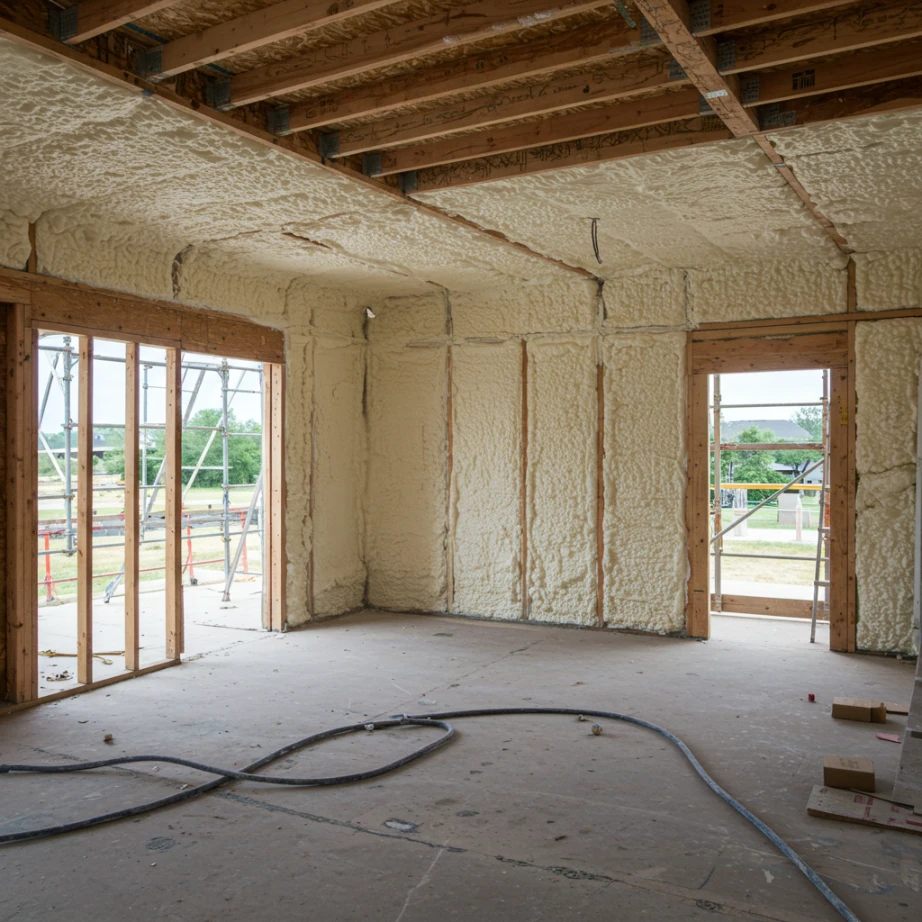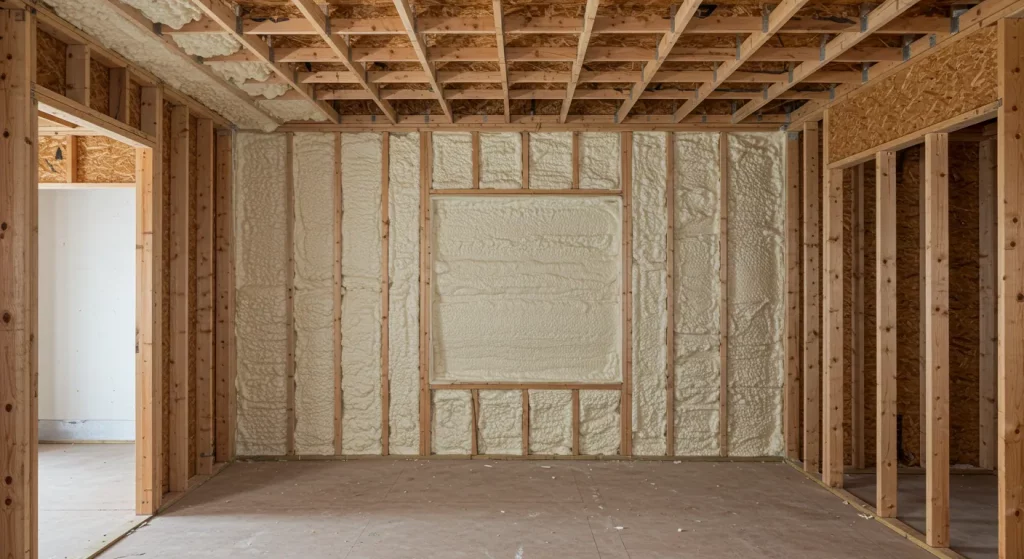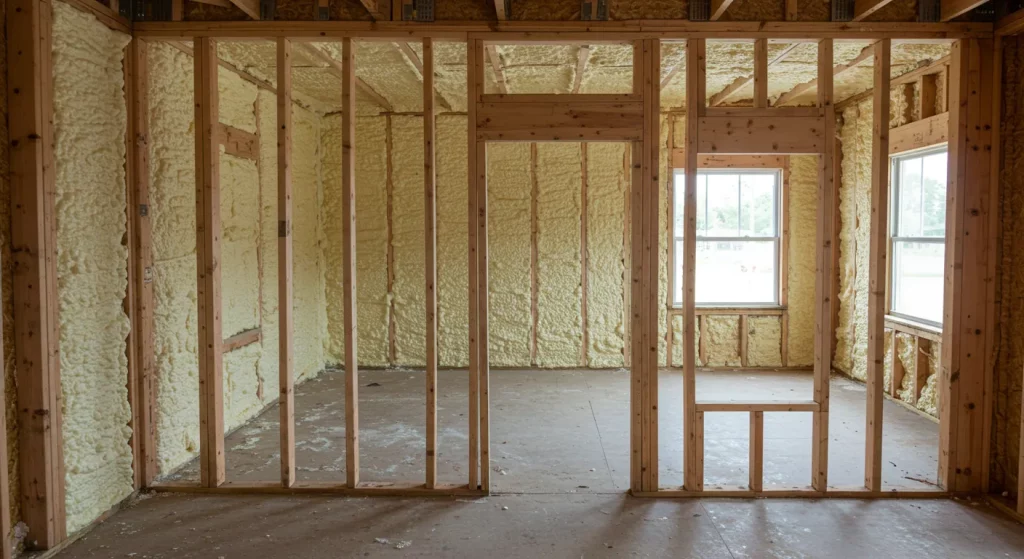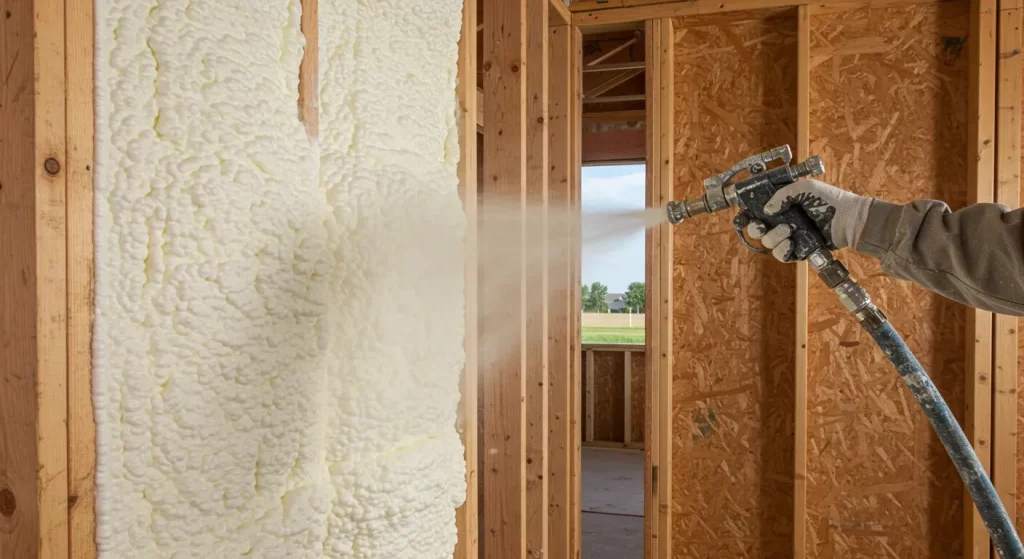When planning a home renovation in Raleigh, major items like kitchen cabinets, flooring, and paint colors often take center stage. Insulation, however, is a foundational choice that dictates the home’s comfort, energy bills, and overall health for decades to come. For renovations, particularly in older North Carolina homes, spray foam insulation provides a comprehensive solution by acting as both an insulator and an air barrier. This dual function is what sets it apart, creating a sealed building envelope that traditional insulation types simply cannot match.
This article offers a detailed look at why spray foam insulation is a sound investment for any significant home remodel in the Raleigh area. The information here is based on extensive field experience helping homeowners improve their properties from the inside out. Raleigh Excel Spray Foam Insulation has seen firsthand how properly installed spray foam can address common issues in local homes, from damp crawl spaces to drafty attics.
Why Spray Foam Is a Smart Choice for Raleigh Renovations
The climate in central North Carolina, with its hot, humid summers and cool winters, places significant demands on a home’s thermal barrier. Renovations offer a unique opportunity to upgrade this barrier from the studs-out, and spray foam is particularly well-suited for the task.
Superior Energy Efficiency in a Humid Climate
The primary job of insulation is to resist heat flow, measured in R-value. While materials like fiberglass have a decent R-value, they do little to stop air leakage. Air infiltration is a major source of energy loss. According to the U.S. Department of Energy, sealing air leaks and adding proper insulation can help a homeowner save an average of 15% on heating and cooling costs. Spray foam excels because it expands to fill every crack and crevice, effectively stopping this air exchange. This means your HVAC system doesn’t have to work as hard to maintain a comfortable indoor temperature, leading to lower energy bills year-round.
Bonus Tip: When renovating an attic, consider creating a “conditioned” space by applying spray foam directly to the underside of the roof deck. This brings your HVAC system and ductwork inside the thermal envelope, making them operate more efficiently and extending their lifespan.
Moisture Control and Mold Prevention
Humidity is a constant battle in Raleigh. Crawl spaces and attics are especially vulnerable to moisture buildup, which can lead to mold, mildew, and wood rot. Closed-cell spray foam is a powerful tool in this fight. It is recognized as a vapor retarder, meaning it resists the passage of moisture. When applied in a crawl space, it creates a seamless barrier that prevents ground moisture from entering the home. In an attic, it can prevent the formation of condensation on the underside of the roof deck, protecting the structural integrity of your home.
Structural Integrity and Longevity
During a renovation, you might uncover structural issues in an older home. Closed-cell spray foam offers a unique secondary benefit: it adds structural rigidity. As the foam cures, its dense, rigid structure adheres to the surfaces it’s applied to, helping to reinforce walls and roof decks. This can be a significant advantage in homes that have settled over time.
Comparing Insulation Options for Your Project
Choosing the right insulation depends on your budget, performance goals, and the specific application. While spray foam has a higher initial cost, its long-term performance often justifies the investment.
| Feature | Closed-Cell Spray Foam | Open-Cell Spray Foam | Fiberglass Batts |
|---|---|---|---|
| R-Value per Inch | R-6.0 to R-7.0 | R-3.5 to R-3.8 | R-3.1 to R-3.8 |
| Air Seal | Excellent | Very Good | Poor (Allows air passage) |
| Moisture Barrier | Excellent (Vapor retarder) | Poor (Allows vapor to pass) | Poor (Can hold moisture) |
| Sound Dampening | Good | Excellent | Fair |
| Typical Lifespan | 80+ years | 80+ years | 15-25 years (Can sag) |
This comparison highlights how different materials perform in key areas. For instance, while open-cell foam offers superior sound dampening for interior walls, a publication from Fine Homebuilding explains that closed-cell foam’s density makes it the better choice for exterior walls and crawl spaces where moisture control is a priority.
Things to Consider Before Making a Decision
Before committing to spray foam, it’s important to evaluate a few key factors to ensure it’s the right fit for your renovation.
Project Scope and Budget
Spray foam insulation is a premium product with a higher upfront cost compared to fiberglass or cellulose. For a full-home renovation, this cost needs to be factored into the overall budget. However, it’s also an investment that pays for itself over time through energy savings and increased property value. Think about the long-term performance and durability, not just the initial ticket price.
Type of Spray Foam
There are two main types of spray polyurethane foam (SPF):
- Open-Cell SPF: Has a lower density and a spongy texture. It’s great for soundproofing interior walls and is more affordable than closed-cell. It is vapor-permeable, meaning it allows moisture to pass through.
- Closed-Cell SPF: Is very dense and rigid. It has a higher R-value per inch and acts as a vapor retarder, making it ideal for exterior walls, roofs, and crawl spaces.
The right choice depends entirely on where it’s being installed and what you want to achieve.
The Importance of Professional Installation
Spray foam is not a DIY product. It’s a chemical mixture that is manufactured on-site and requires precise temperature and pressure controls. An improper installation can lead to off-ratio foam that doesn’t cure correctly, may have an odor, and won’t perform as expected. Always hire a certified and insured contractor who has proven experience with spray foam applications.
Bonus Tip: Ask potential installers about their equipment, training, and safety protocols. A professional crew will take steps to ventilate the area properly and ensure the home is safe for re-entry after the curing process is complete.
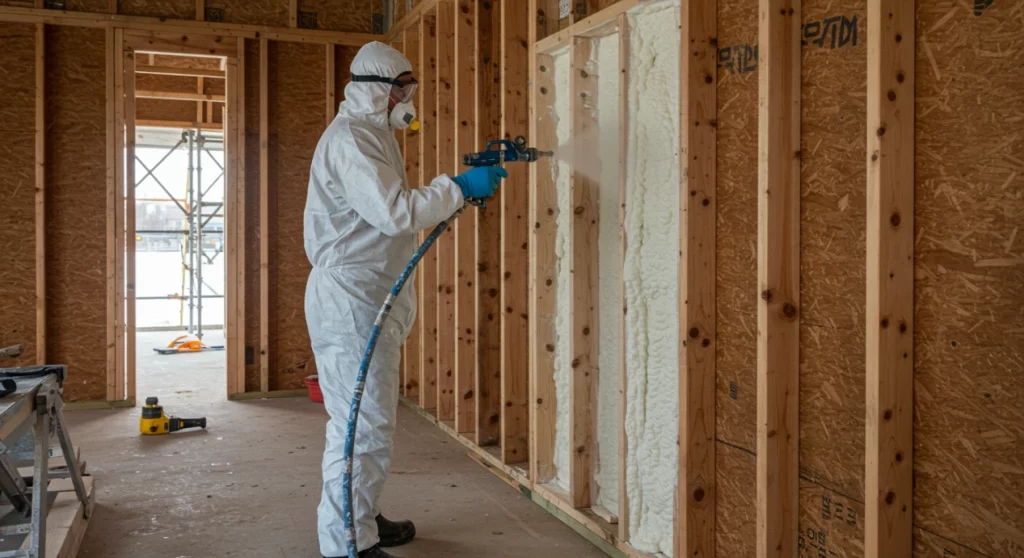
Final Thoughts on Your Renovation
When the walls are open during a renovation, you have a golden opportunity to make a lasting improvement to your home’s performance. Upgrading to spray foam insulation is an investment in long-term energy efficiency, comfort, and structural health. By creating an effective air and moisture barrier, it addresses many of the challenges specific to homes in the Raleigh area. Before making a final decision, evaluate your home’s specific needs, your budget, and your long-term goals for the property.
Get a Professional Assessment
The best way to determine if spray foam is right for your renovation is to have an expert evaluate your project. A professional can assess your home’s unique conditions and provide a clear plan and estimate. For a detailed consultation, you can contact Raleigh Excel Spray Foam Insulation by calling (919) 301-9435 or sending an email to [email protected] to discuss your specific renovation needs.
Sources
- Fine Homebuilding – An article detailing the technical differences and best-use cases for open-cell and closed-cell spray foam insulation.
FAQS
What is the return on investment for spray foam insulation?
The return on investment comes primarily from significant energy savings over the life of the home. While payback periods vary, many homeowners see a reduction in their heating and cooling bills that makes the initial cost worthwhile within five to seven years.
Is spray foam insulation safe for my family?
When installed correctly by a certified professional and allowed to cure fully, spray foam is considered inert and safe. The key is hiring a qualified contractor who follows strict safety protocols during and after the application process.
Does spray foam reduce outside noise?
Yes, both open-cell and closed-cell spray foam are effective at reducing airborne noise. Open-cell foam, in particular, is excellent for deadening sound and is often used in media rooms, offices, and bedrooms for a quieter indoor environment.
How long does spray foam insulation last?
Spray foam is an inert and stable polymer. It doesn’t sag, settle, or degrade over time like other insulation materials can. When installed properly, it should last for the entire life of your home.




